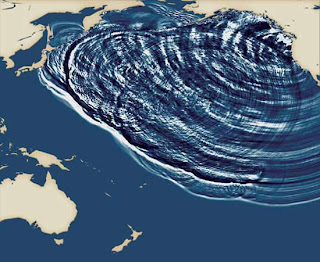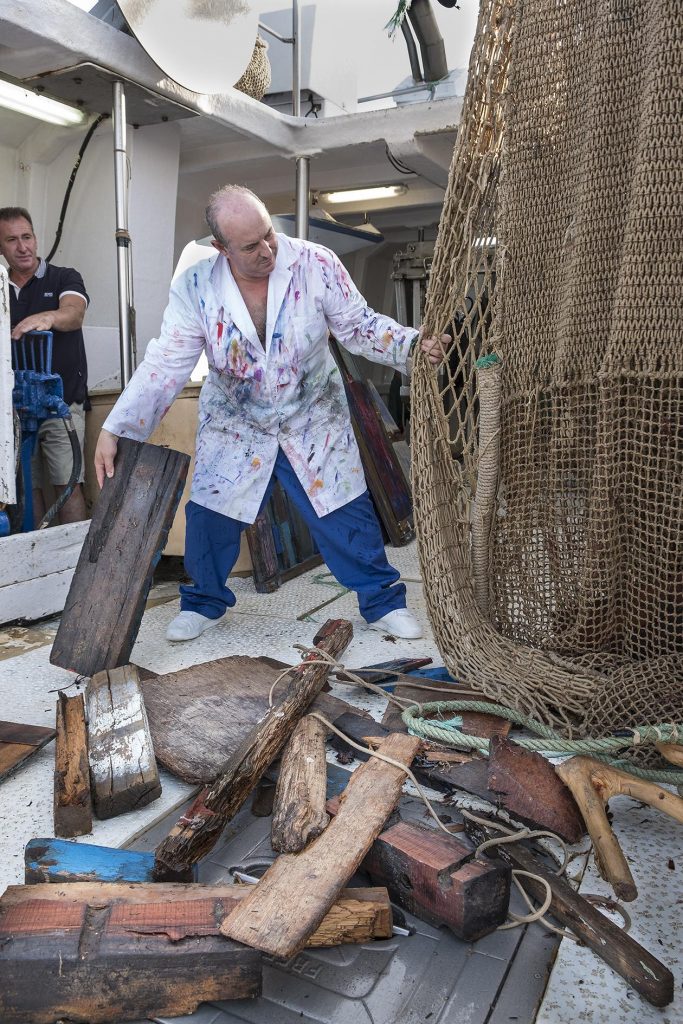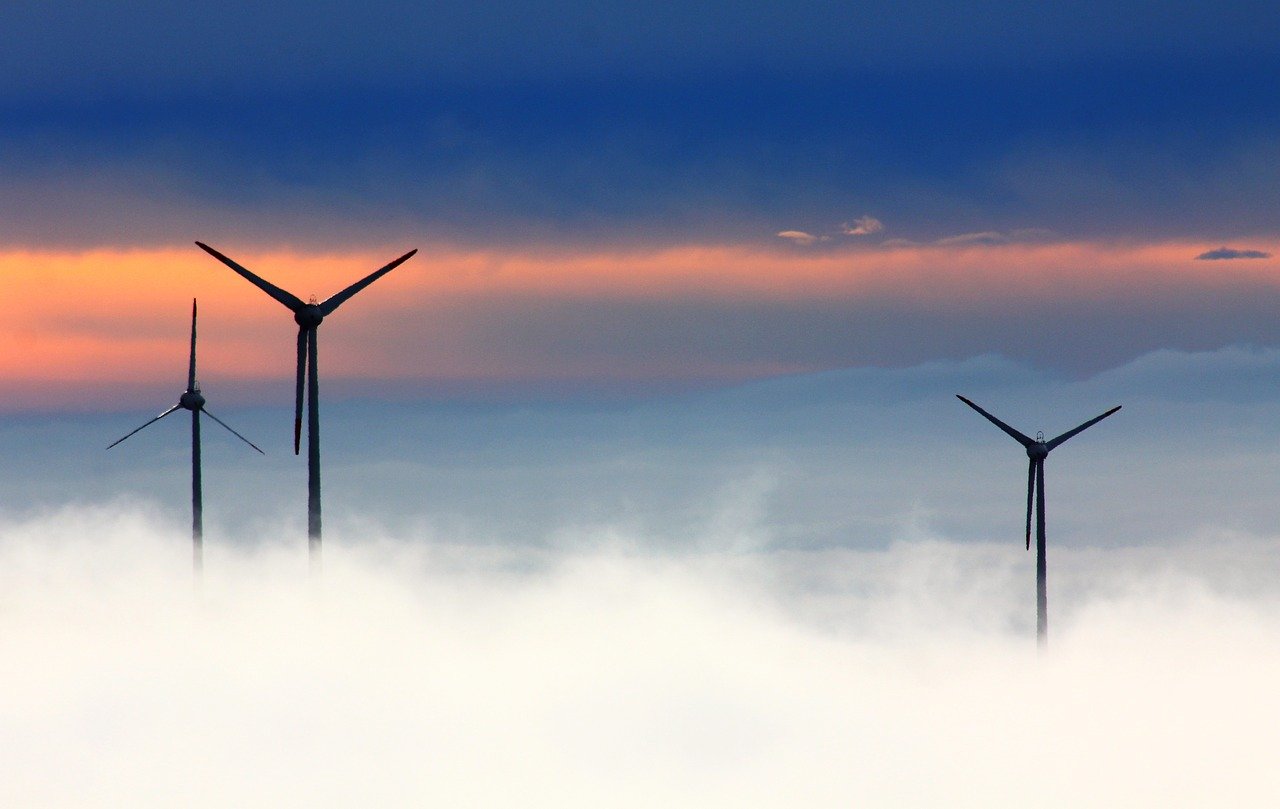Environment
8.9 Earthquake in Japan, Tsunami Warning to Russia, Taiwan and South East Asia
 |
| *Image not claimed by TWR, found under creative commons free to use |
An earthquake of 8.9 magnitude hit Japan today. It is the biggest earthquake in Japan in past 140 years and the magnitude of the earthquake is 7th largest ever recorded in the world, sparking off 10 meter high tsunami wave that swept everything on its way. Until now there is a report of death of at least one person.
Public broadcaster NHK said, sparked fires and the wall of water, prompting warnings to people to move to higher ground in coastal areas.
Buildings were shook and an oil refinery near Tokyo was on fire. Japan almost completely imports the fuel for living. Some people identified black smoke over an industrial area in Yokohama’s Isogo area. Read Impact on Economy after Japanese Earthquake, Tsunami
Japan has shut down its nuclear and oil refineries to prevent any further damage. There is no report of leakage of nuclear radiation till now. Latest reports say Japan has declared state of emergency for five nuclear reactors at two power plants after the units lost cooling ability due to the consequences of the earthquake. Reports are coming that US is providing nuclear reactor coolant to Japan.
Meanwhile America’s has expanded its warning to entire pacific coastal region. The tsunami refreshed the terrifying memories of 2004 Indian Ocean tsunami which caused a lot of destruction in the region.
If you are worried for the safety of your friend or relative who is in Japan right now and if he or she is not picking up your calls or replying to your messages consider using the below tool to find his or her status.
If you are in Japan and have information about your friend or relative then use the second option to give information so that his relatives or friends can track him. If you are a webmaster kindly include this Person Finder tool on your website to help your visitors.
Update 2: Almost all power stations on the Pacific East Coast of Japan, north of Chiba prefecture (just southeast of Tokyo) have been shut down including all Japan Railways service East and North of Shizuoka Prefecture. Public transport in Tokyo is totally suspended. Tsunami went off scale upto 7.3 meters at the port of Souma in Fukushima Prefecture. Reports says there have been 3 aftershocks greater in magnitude in Richter Scale and six more all between magnitude 6.0 and magnitude 6.9 so far. It is believed that more such shocks are expected but now in small magnitudes.
We pray for the people who are affected by the Tsunami and the Earthquake.
List of major earthquakes in history
- Impact on Economy after Japanese Earthquake, Tsunami
Japan Could Have Avoided Nuclear Disaster
Work at Fukushima Nuclear Plant Suspended
Image of Japanese Tsunami Gets Shocking; asked IAEA for help
- Second Blast at Quake Hit Japanese Nuclear Plant
-
-
- Japan Earthquake Triggered Russian Volcanoes
- Earthquake Shifts Japan Islands and Earth Axis
- Nuclear Radiation leaking in Japan
Radiation level exceeds legal limit at earthquake hit Japan
Scroll down and post your prayers for the innocents in Japan in the comment form below
Environment
The Future of Fashion: The Rise of Eco-Conscious Brands in the Luxury Market

The once opulent and exclusive realm of luxury fashion is undergoing a dramatic transformation. Driven by a growing global consciousness about environmental impact, consumers are demanding more sustainable choices, even at the highest price points. This shift in consumer preferences is reshaping the industry, forcing luxury brands to reevaluate their production processes and material sourcing.
As a result, luxury eco-friendly collections are becoming increasingly sought after, and brands that prioritize sustainability are gaining a competitive edge.
Key Trends Shaping the Market
The luxury fashion market is experiencing a significant shift as sustainability becomes a core value for both brands and consumers. One of the most prominent trends is the rise of eco-friendly fashion that blend high-end design with ethical practices.
These collections are characterized by the use of sustainable materials, such as organic cotton, recycled fabrics, and innovative alternatives to traditional textiles. Brands are also focusing on reducing their environmental impact by adopting eco-friendly production methods, including water-saving technologies and carbon-neutral manufacturing processes.
Brands like Onibai are at the forefront of this movement, offering exquisite designs that not only cater to the aesthetic tastes of discerning customers, but also align with their values of sustainability. As consumers become more aware of the environmental and social implications of their purchases, they are increasingly seeking out brands that offer a blend of luxury and responsibility.
Consumer Demand Driving the Change
Consumer preferences are increasingly dictating the trajectory of the fashion industry. A growing emphasis on sustainability and ethical practices has empowered consumers to demand more from the brands they support. This shift in consumer behavior has led to a surge in demand for luxury eco-friendly products, forcing fashion houses to adapt their business models accordingly. This demand for transparency and ethical practices has compelled luxury brands to rethink their strategies and adopt more sustainable business models.
For example, a recent study by McKinsey & Company found that 66 % of global consumers are willing to pay more for sustainable products. This trend is particularly strong among millennials and Gen Z consumers, who are more likely to be environmentally conscious.
Leading the Way: Eco-Conscious Luxury Brands
Several luxury brands have emerged as leaders in the sustainable fashion movement, setting a precedent for the industry. Onibai, for instance, has distinguished itself with its commitment to sustainability, offering luxury eco-friendly collections that resonate with environmentally conscious consumers.
By prioritizing the use of organic materials, low-impact dyes, and fair labor practices, Onibai exemplifies how luxury can coexist with ethical responsibility.
The Future of Luxury Fashion
The rise of eco-conscious brands in the luxury market marks a significant turning point for the fashion industry. As more brands embrace sustainability, the definition of luxury is evolving to encompass not only quality and craftsmanship but also ethical responsibility. This shift is not just a passing trend; it represents the future of fashion, where consumers and brands alike recognize the importance of preserving our planet while enjoying the finer things in life.
In this new era of luxury fashion, eco-friendly collections like those offered by Onibai are leading the way, proving that sustainability is not a compromise but a new standard of excellence. As the demand for sustainable fashion continues to grow, the future of luxury will undoubtedly be defined by its commitment to eco-consciousness, ensuring that elegance and ethics go hand in hand.
Environment
Redefining marine recycling through painting and sculpture

Frutos María Martínez, a self-taught visual artist, has been rescuing waste from the ocean’s waters for decades, turning it into beautiful and elegant artwork. Finishing his first painting and sculpture pieces at just fourteen, Frutos has spent his entire life guided by his passion for art. Becoming a professional artist in the mid-1980s after working at car dealerships, Frutos used his skills and expertise with metal to create sculptures and paintings, inspired by the materials he found along the Mediterranean Coast.
In his pieces, Frutos combines numerous medias to create sculptures, paintings, and collages. As part of his process, María spends time exploring the beaches and waters of Alicante, a Mediterranean city along the southeastern coast of Spain and his home since 1985.
Here, he has found all sorts of materials that have gone on to become pieces in his collections. Steel, iron, wood, nets, and textiles, among other objects, that Frutos salvaged from the ocean can all be found in his art.
By reusing and recycling these found objects, the artist is able to give new life to abandoned and forgotten waste. María recognizes the environmental issues we are facing at a global level, and his art seeks to raise awareness of these challenges. As his materials are pulled straight from the Mediterranean Sea, he is especially invested in taking care of marine life and our oceans. With each item the artist salvages from the ocean, one less piece of waste is polluting the waters.

Once the flotsam is collected, Frutos returns to his workshop where he creates works of art in different forms. While other artists may send their work to be fabricated by others, María could not imagine his pieces being created in a place other than his studio. Here, he uses his innate skills with metal and machinery to forge and construct works of beauty. His sculptures follow hard lines, both straight and curved, and his paintings exude color. When making his collages, he takes his found mixed media and creates new stories. He adds paint to wood that was floating in the sea or combines various materials together, reimagining a life for objects that were once trash.
With a true passion for his work, he creates through intuition. He explains that there is a moment when his art becomes completely emotional and personal, “each piece is imbued with my experiences and emotion, all lumped together, all conveyed by means of materials, technique, design and imagination.” The works his hands awaken and renew are the convergence of his mastery and his spirit, bringing new life to discarded objects.These fascinating pieces have been shown in numerous exhibitions, most recently at the Museum of the University of Alicante. There, the artist presented Acero y pecios del mar (Steel and Sea Wrecks), where two collections were displayed jointly, one offering sculptures focused on steel as a material and the other called Nueva Vida, or New Life, a collection whose pieces were created by recycling materials salvaged from sea wreckage. With this collection, he introduced a new layer into his work, adding an element of chaos and destruction to the backstories of his materials.
An earlier exhibition, Janus, displayed over 40 of Frutos’ sculptures on the University of Alicante’s campus. This exhibit, named for the Roman god of doors, gates and transitions, was influenced by the duality of life, of beginnings and ends, and of old and new. While his finished pieces reflect this duality, the materials used to create them manifest this theme through their first death being revived into new life, a tangible and concrete example of the contrasting polarity he was inspired by.
As with his sculpture-centered exhibitions, his shows highlighting his paintings are full of found materials. Pieces that Frutos creates hang with the weight of rescued and recycled materials, such as rusty iron, steel, and wood. This media has been taken from the ocean and included in his art, conjoining with resin, sands, and paint in bold and striking colors.
Frutos María’s ability to not only find new meaning in recycled and salvaged objects, but to clean up the oceans and make the environment less polluted, translate through his moving pieces of artwork, and because of this, he has made a name for himself in the art world.
Environment
Wind energy, the best way to invest into renewable energies

Over the last few years, wind energy has become the type of energy everyone can not stop talking about. This type of energy brings lots of benefits into the table when compared to more traditional sources of energy, like the energy proceeding from radiation or charcoal. Wind energy is cheap to produce, the most efficient renewable energy, and, most importantly, it is an ecological sensitive alternative.
Why should you invest in wind energy?
Wind energy is the energy of tomorrow. This type of energy made their big appearance during the XX century, when wind turbines would be used to bring energy to areas located far from the electricity grid, such as isolated farms, houses or factories.
During the XXI century, wind energy’s popularity kept on rising. Wind energy is as cheap to produce as traditional sources of energy, like radiation or charcoal burning, while falling into the category of renewable energies. This made wind energy become a top contender in the energy industry.
The wind industry’s future looks to be brighter than ever. The current generation is pretty aware of pollution and the effect it has on climate change. This has caused that governments all around the world start promoting new legislations and campaigns promoting renewable energy and, since wind energy is the most efficient type of renewable energy, it is expected that it will become the main source of energy by 2030. Now is the best moment to jump into the wind energy trend!
Making sure you set up an efficient wind farm
As it has been previously stated, wind energy is definitely an option you should consider if you are looking to power up any of your properties or business. However, setting up a wind farm isn’t a small investment, therefore, before starting this process we need to gather all the information we can about its viability. That is why we can not stop recommending that you consult with professional companies like Vortex FDC.
Vortex FDC is a company that has made a name for itself in the wind industry sector. Vortex assists their customers with all the information regarding wind resource they could need.
For example, an important factor we need to consider before setting our wind farm is the terrain. Not all terrains are appropriate to locate a wind farm, therefore, the terrain would need to be assessed before an installation that could result in a waste of assets if the terrain is not appropriate for it. Vortex FDC helps their customers evaluate where the wind farm is going to be placed, and providing information about the wind to choose the type of turbines that would yield better results in that area. Factors like the type of wind (extreme winds, turbulences, etc) or the temperature need to be taken into account when deciding which type of turbine would be more suitable for our wind farm. For example, if we plan to build a wind farm in an area that gets freezing and snowy in winter, we would need to get a turbine system that is cold resistant.
Vortex FDC runs a numerical weather model to feature all the variables that could affect the production levels of your wind farm, regardless of it being situated off-shore or in-shore. Thanks to their always up-to-date technology, you will be able to avoid unpleasant surprises regarding the energy production of your wind farm.
Overall, opting to use wind energy is an amazing idea that will benefit not only our budget, but also the planet. But, in order to do so, we need to make sure that wind farms are viable, and for that, we need to rely on professionals like Vortex FDC.









